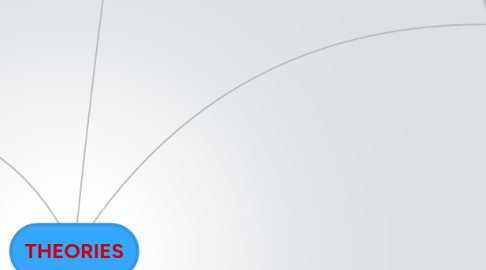THEORIES
by Madison Kern


1. SCOT
1.1. Social Construction Of Technology
1.2. human action shapes technology
1.3. technologies success based on society
1.4. media and technology have different functions and meanings for each social group
2. media ecology
2.1. technology (the media) controls the masses
2.2. the study of media as environments
2.3. media and technology control all aspects of human life
2.4. technology and media influence how individuals perceive and understand
3. constructivism
3.1. knowledge is found by the learners, not created by them
3.2. learning is more hands on for students
3.3. learner-centered instruction
3.4. self-directed
3.5. learning process is important
3.6. learners history is important to the learning process
3.7. responsibility of learning lies within the learner
3.8. technologies
3.8.1. Alberta ecampus
3.8.2. mindmeister
3.8.3. students working together
3.9. collaborative elaboration
4. connectivism
4.1. knowledge exists in the world, it is not made by humans
4.2. learning as creating connections and establishing networks
4.2.1. connecting nodes
4.3. emphasis the process of learning
5. cognitive
5.1. over or under stimulation results in un-affective learning
5.2. prior knowledge is key in learning (mind is not a blank slate)
5.3. technologies
5.3.1. evernote
5.3.2. prezi
5.4. working(short-term) memory vs long term
6. Learning Theories
7. Technology Theories
8. [TPACK] Technological Pedagogical Content Knowledge
8.1. pedagogical knowledge
8.1.1. mindmapping
8.1.2. collaboration
8.1.3. differentiated learning
8.1.4. cross-curricular
8.1.5. instruction methods
8.1.6. methods of learning
8.1.7. lesson plans
8.1.8. classroom management skills
8.1.9. student assessment
8.2. technological knowledge
8.2.1. youtube
8.2.2. ipads
8.2.3. twitter
8.2.4. internet
8.2.5. smartboard
8.2.6. apps
8.2.7. skype
8.2.8. constantly changing
8.3. content knowledge
8.3.1. research
8.3.2. subject matter
8.3.3. teachers knowledge
8.3.4. understand the knowledge fundamentals for specific disciplines
9. technological content knowledge
9.1. constant progress in specific fields to further knowledge and understanding
9.2. technological advances lead to fundamental changes in the nature of disciplines
9.3. TCK is how technology and content influence one another
10. pedagogical content knowledge
10.1. the integration of content, pedagogy and learner characteristics
10.2. teachers interpret knowledge and find multiple ways to represent it
10.3. teachers adapt instructional materials and take into account students prior knowledge
11. pedagogical technological knowledge
11.1. how learning and teaching changes when certain technologies are used, as well as how the technology is used
11.2. most technology not created for pure educational purposes, one must be creative and open-minded in order to figure out how to incorporate it effectively into the classroom
12. Philosophy of Teaching
12.1. represents your philosophical orientation to teaching and learning
12.1.1. learning should have a purpose and provoke thought
12.1.2. learning should be active
12.1.3. learning should engage the student, be active
